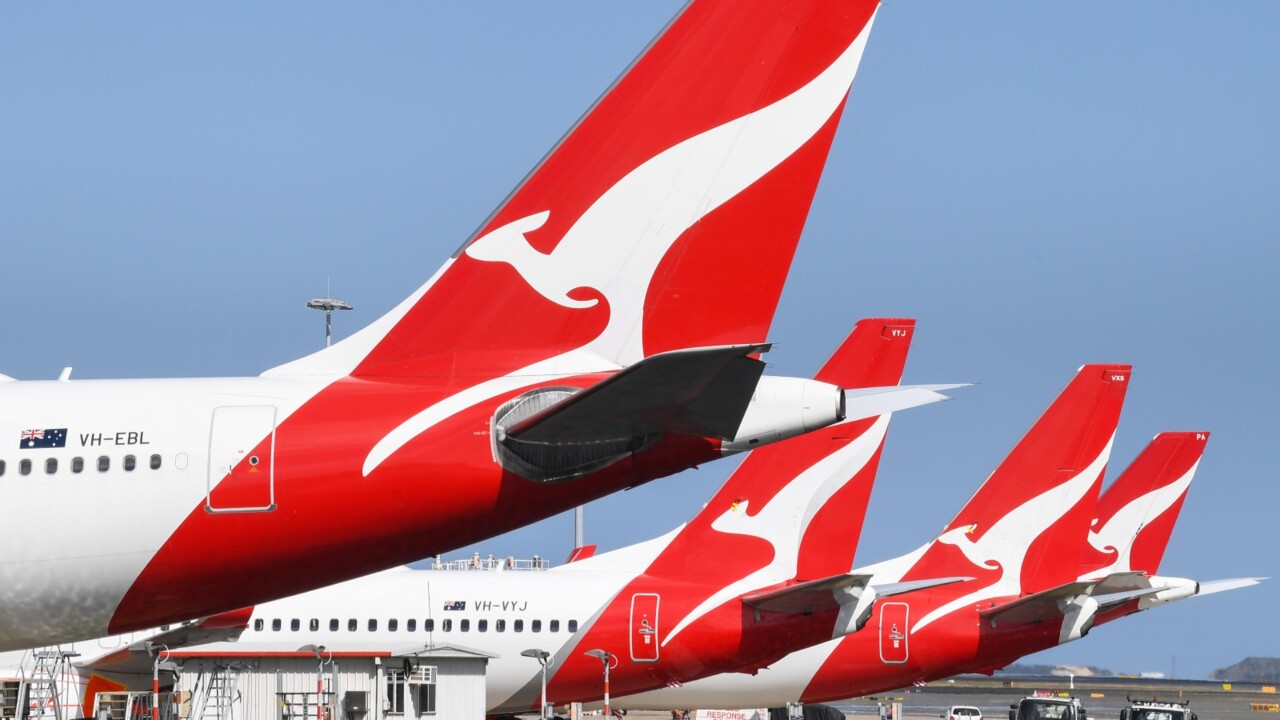Qantas CEO pay up 15 per cent in 2022 even without any bonuses
The Qantas CEO has had his base salary restored to pre-pandemic levels. But he won’t receive a bonus, and is saving his biggest payday for his final year with the airline.

Qantas chief executive Alan Joyce has pocketed a 15 per cent pay rise in 2022 after his base salary was restored to pre-pandemic levels.
Despite poor on-time performance, lost baggage and rising fares, new disclosures show Mr Joyce’s total pay from $1.98m to $2.27m in the 12 months to June 30.
However, this remains significantly below Mr Joyce’s pay before the Covid-19 pandemic, when his earnings hit $10m after bonuses.
Other executives have also had their remuneration increased, the new disclosures show. In particular, Qantas chief financial officer Vanessa Hudson has seen her total salary rise $236,000 to $1.44m.
However, the company has decided to not pay short-term bonuses to executives after delivering an underlying loss of $1.86bn for the financial year to June 30.
Mr Joyce has also delayed a decision on the vesting of his long term incentives worth $3.3m. The move should mean the businessman leaves with a massive payout if – as expected – he retires at the end of 2023. He is separately entitled to 698,000 performance bonus rights next year, providing the airline’s pandemic recovery plan targets are achieved.
Other Qantas executives did receive their long term incentive payments – between $350,000 and $400,000 – because the airline ranked second among a group of 18 peers for shareholder returns.
Jetstar chief executive Gareth Evans, who will depart the airline in December, was the second highest earner after Mr Joyce, taking home $1.58m. The low cost carrier slumped to a $796m loss in the 2022 financial year, but Mr Evans still qualified for a $425,000 long term incentive payment.
The payment was for a period before half of Jetstar’s long-haul fleet was out of service because of maintenance and engineering issues. That snafu has left thousands stranded in Bali and Thailand.
An Australian Competition & Consumer Commission report released this week also found travellers had abandoned the low-cost carrier, with its market share down from 28 per cent to 23 per cent in July. Qantas and rival Virgin Australia cut flight capacity between April and July by 10 per cent, with the competition regulator finding the cheapest economy airfares were 56 per cent higher in August than they were in April.
Qantas chair Richard Goyder said executive pay had been constrained through the pandemic with a wage freeze and no short term bonuses for the third year.
He said the retention bonus scheme in place for next year was key to keeping the considerable talent in the team, and “it depends on delivering the recovery in full”.
“Managing an airline through a pandemic is incredibly difficult and few have emerged with the underlying strength that Qantas has,” Mr Goyder said.
“That’s an absolute credit to Alan Joyce and his team, though the full impact of what’s been achieved and will be best judged a few years from now when new aircraft are arriving, new routes are opening up and (there are) lots of opportunities for our people.”
Mr Joyce is expected to depart the airline in late-2023 after 15 years at the helm, previously stating his intention to stay on long enough to guide Qantas through the start of the Covid-19 recovery.
The remuneration report was criticised by Transport Workers Union national secretary Michael Kaine, who said Mr Joyce had set himself up for a “windfall retirement next year”.
“His strategy to gut the airline of its essential workforce, drive down pay and conditions to the bottom of the barrel, and leave passengers stranded by grounding flights to show his workers who’s boss has crucified the spirit of Australia and left us with a decimated airline,” Mr Kaine said.
Mr Goyder said 2022 had been another tough year for the airline, its shareholders, customers and employees but he was buoyed by the strong demand for travel.
“This annual report hopefully represents the last chapter of the terrible impact that the Covid crisis had on Qantas,” he said. “The restart has been bumpy which reflects how difficult it is to bring an airline out of hibernation at the same time as dealing with record rates of Covid in the community.”
He extended a “sincere apology” to customers as the airline worked its way back to pre-Covid standards of service and highlighted recent data showing Qantas was back on track.
Around 70 per cent of flights were now on time and cancellation rates were down to around 2 per cent, while call centre waiting times had shrunk from more than 2 hours, to 7 minutes.
“Our people have worked incredibly hard through the recovery, including during the well-publicised challenges of recent months,” said Mr Goyder. “We’ve set aside almost $200m to share the benefits of the return to profit across the group with them.”
Among the other pay increases, Qantas domestic and international chief Andrew David made $1.45m, and Qantas Loyalty chief executive Olivia Wirth saw her total pay remain unchanged at $1.25m. However Ms Wirth’s base pay climbed 5 per cent.
Some employees have been privately critical of the larger pay rises to some executives, after they were restricted to 2 per cent pay increases. All senior executives also stood to gain a healthy retention bonus next year worth between $900,000 and $1.2m, providing the airline’s recovery plan was achieved.
Future bonuses would also have to meet new criteria, including a greater emphasis on customer satisfaction and the introduction of an environmental measure, Qantas has said.








To join the conversation, please log in. Don't have an account? Register
Join the conversation, you are commenting as Logout